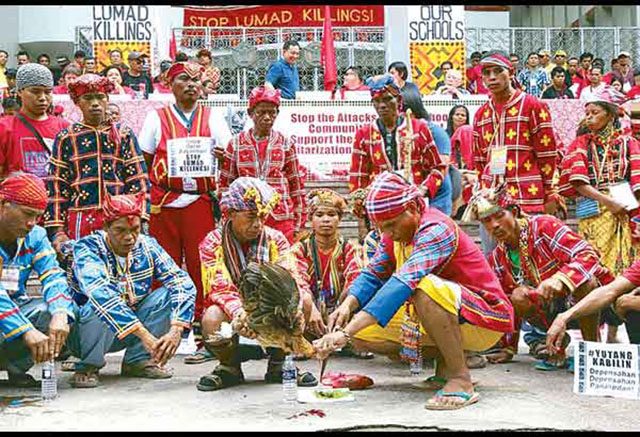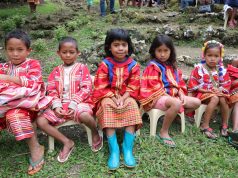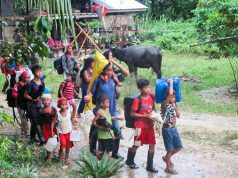
MANILA — A community radio station in the Philippines is drawing attention to the struggles of indigenous Lumad people, whose rights to ancestral land and resources are increasingly under threat from industrialization.
Radyo Lumad, launched last year by the charity Rural Missionaries of the Philippines (RMP) and the rights group Kalumbay Regional Lumad Organization, broadcasts eight hours a day, five days a week.
It offers a mix of news and commentary, as well as traditional music and a helpline for listeners’ queries.
Its 43 community reporters focus on rights violations, including forced evacuations and threats from industrial and mining projects.
“Indigenous people have limited representation and participation in the media,” said Mona Sihombing at the advocacy group Asia Indigenous Peoples Pact.
“Alternative and community media, such as Radyo Lumad, provide a space for our voice to be heard in the fight for our rights,” she told the Thomson Reuters Foundation.
The Lumads in Mindanao island in the southern Philippines are among the nearly 17 million indigenous people who make up about a fifth of the country’s population.
They are among the poorest ethnic groups, and have been caught in a five-decade-old insurgency, as well as a push by logging and mining companies to tap resources including gold, copper and nickel.
Their vulnerability is exacerbated by martial law imposed in Mindanao by President Rodrigo Duterte, who has called the island a “flashpoint for trouble” and atrocities by Islamist and communist rebels.
Thousands of Lumad people have been displaced and many killed, according to a report last year by Victoria Tauli-Corpuz and Cecilia Jimenez-Damary, the U.N. Human Rights Council’s special rapporteurs on the rights of indigenous peoples.
The ancestral domains of the Lumad are recognized and protected by the Indigenous Peoples’ Rights Act 1997. Commercial use of these lands needs their free, prior and informed consent.
But consent is rarely sought, and many Lumad do not have titles for their ancestral domain, campaigners say.
Duterte said earlier this year he would open up these lands in Mindanao to attract investors to generate wealth.
Radyo Lumad, which has a potential reach of 400,000 listeners, is the only indigenous radio station in the Philippines, apart from Radyo Sagada in Mountain Province.
“Radyo Lumad is a milestone for the Lumad, as they get to tell their stories as they see them,” said Kristin Lim at RMP in Northern Mindanao.
“It has also opened the eyes of non-indigenous listeners, who are more aware of the struggles of the Lumad, and have opened up their churches and their schools to them,” said Lim, who is also the station manager. — Reporting by Rina Chandran; Editing by Jared Ferrie









